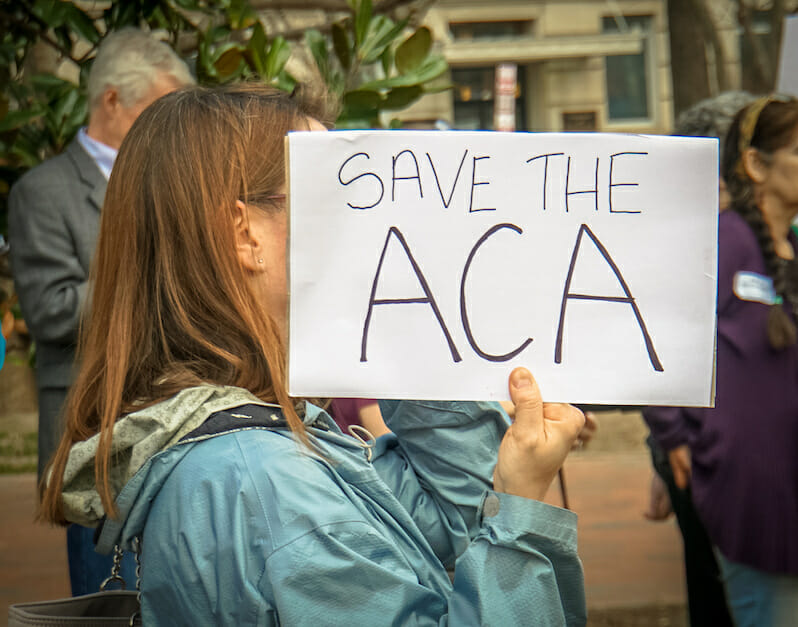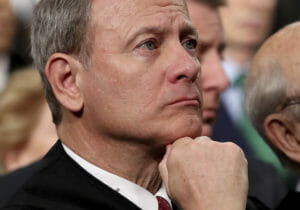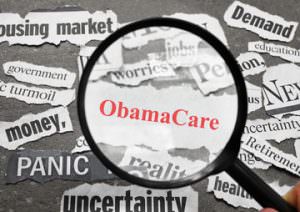Republicans’ Attempts to Scrap the ACA Produce a Surprising Side Effect
GOP legislators struggling to "repeal and replace" find themselves facing stronger public support for Obamacare and rising sentiment for a right to health care. A woman holds a sign supporting the Affordable Care Act at a February rally outside the White House. (Ted Eytan / Flickr)(CC-BY-SA)
A woman holds a sign supporting the Affordable Care Act at a February rally outside the White House. (Ted Eytan / Flickr)(CC-BY-SA)
A woman holds a sign supporting the Affordable Care Act at a February rally outside the White House. (Ted Eytan / Flickr)(CC-BY-SA)
In their bids to pass health care legislation, or possibly to repeal the Affordable Care Act with the intention of replacing it later, Senate Republicans have apparently pulled off a stunt their Democratic counterparts couldn’t manage: They’ve made the legislation known as Obamacare popular among a majority of Americans.
The New York Times reports that support for the Affordable Care Act has risen since the election, with more people now viewing the law favorably than unfavorably:
The change in public opinion may not denote newfound love of the Affordable Care Act so much as dread of what might replace it. The nonpartisan Congressional Budget Office estimates that both the House and Senate proposals to replace the law would result in over 20 million more uninsured Americans. The shift in mood also reflects a strong increase in support for Medicaid, the health insurance program for the poor that the law expanded to cover far more people, and which faces the deepest cuts in its 52-year history under the Republican plans.
After the success of Trump’s campaign promising smaller government, Republicans are now working in the face of a growing consensus that the government should guarantee health insurance to all. The Times’ write-up cites a Pew survey from January, which states that 60 percent of Americans believe that the government should be responsible for ensuring that all Americans have health care — up from 51 percent since last year.
This all adds to the difficulty Senate Republicans will have to pass health care legislation. Their repeal-only plan, which would repeal Obamacare without a concrete plan B at the ready, leaving some 20 million previously covered Americans without insurance, has been dealt a blow by the Senate parliamentarian, whose members say it breaks several rules, according to Politico:
The Senate parliamentarian advised Friday in an informal and preliminary ruling that key conservative agenda items, including defunding Planned Parenthood for one year and banning coverage of abortion in Obamacare insurance plans, do not comply with Senate rules on reconciliation, the fast-track procedure the GOP is using to repeal Obamacare.
… The 52 Senate Republicans would need to muster 60 votes to preserve each provision flagged by the parliamentarian for potentially violating the so-called Byrd rule. But Democrats have united in opposition to the GOP repeal effort. In addition to the Planned Parenthood and abortion language, other provisions identified by the parliamentarian would fund insurance cost-sharing subsidies and impose a six-month waiting period for individuals attempting to enroll in coverage for the first time.
The parliamentarian’s guidance — provided as part of a process known on Capitol Hill as a “Byrd bath” — amounts to a significant win for Democrats, who are aiming to eliminate as much from the health care bill as possible.
Republicans plan to vote again next week on whether to begin additional debates on repealing Obamacare, but key senators increasingly are urging bipartisanship in the hopes of a successful vote. “Should have been bipartisan when Obamacare was passed. It should be now as well,” Republican Sen. John Barrasso said Sunday on ”Face the Nation.” “For big things that affect the country, it should be done in a bipartisan way,” he added. Reports CBS:
When pressed if any Republicans had reached out to Democrats in the hopes of creating a bipartisan effort on legislation, Barrasso said he’s visited the floor of the Senate with a number of Democrats, but that they have put forth their own contentions to major aspects of the bill.
“They say, ‘Well, you know, we do want to work together, but there are a couple things. One is, don’t touch the mandate.’ Well, the mandate, the individual mandate that says people have to buy a government program, that’s the most hated part of Obamacare,” said Barrasso.
As for those Americans who originally hated the ACA, many have found that their feelings have evolved. The New York Times’ piece adds:
“The idea that you shouldn’t take coverage away really captured a large share of people who weren’t even helped by this bill,” said Robert Blendon, a health policy expert at Harvard who has closely followed public opinion of the Affordable Care Act.
The shift in sentiment regarding the ACA might have less to do with genuine appreciation for it and more to do with fear of what might replace it. The change has also entailed additional support for Medicaid, which would face the deepest cuts in its 52-year history under the Republican plans.
Your support is crucial…With an uncertain future and a new administration casting doubt on press freedoms, the danger is clear: The truth is at risk.
Now is the time to give. Your tax-deductible support allows us to dig deeper, delivering fearless investigative reporting and analysis that exposes what’s really happening — without compromise.
Stand with our courageous journalists. Donate today to protect a free press, uphold democracy and unearth untold stories.






You need to be a supporter to comment.
There are currently no responses to this article.
Be the first to respond.